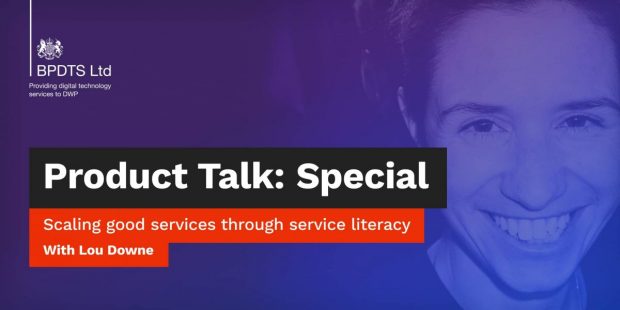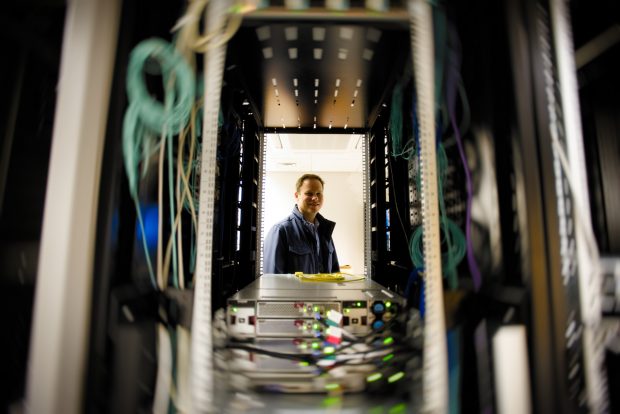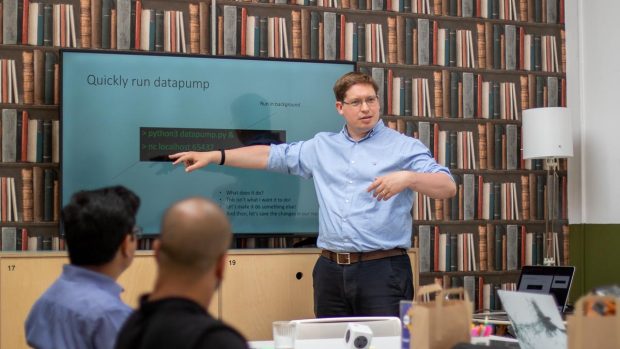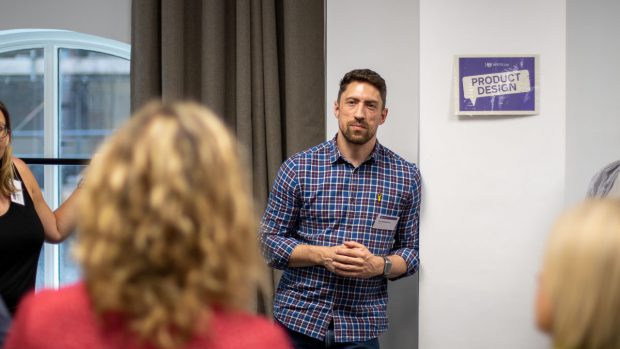Our Services
As a core part of BPDTS's organisational culture, we’re creating an environment where learning is key to everything we do – where time spent working equals time spent learning. The BPDTS Product Talks provide an opportunity for people to learn as part of their continued personal development. In the latest Product Talk, we heard Lou …
Andy Jones, a Lead Infrastructure Engineer at BPDTS, supports different teams at the Department for Work and Pensions, helping navigate the cloud and virtualisation journey. Learn why Andy finds working in the public sector and cloud an exciting place for professional development.
Great tools and a brilliant team make career transitions smoother. Learn how job shadowing led Alicia Cahill to the perfect engineering role in government.
BPDTS Engineering teams need to anticipate the future and plan for it. Changes expected to occur in the next decade are happening now, all at once. What trends are emerging, and what are the downstream consequences for software development?
Surfacing issues, reaching consensus, and collaboration produce better solutions. It's fundamental for individuals to develop the skills they need to disagree productively. Self-reflection, conflict diagnosis, and empathy are effective techniques to help a team get back on track. In today's post, Agile coach, Steve Mounsey, discusses 2 self-reflection models to help teams work better together.
If you’re involved in product design, please leave your assumptions at the door. Regardless of what role you play in the product lifecycle – a designer, front-end developer, or delivery manager, end-user research and experimentation have a role. Hypothesis driven design leads to better solutions – based on what users want, not what you think …
Conflict in agile teams is both good and bad. Dispute sparks healthy debate and flushes out valuable insight. However, when left unchecked, conflict can destroy a team, affecting productivity, success, and satisfaction. Agile Coach, Steve Mounsey, helps dysfunctional teams build conflict resolution skills by focussing on 3 areas – self-reflection, conflict diagnosis, and empathy. Please …
Career mobility is directly related to personal satisfaction, job advancement, and career development. Apprenticeships are evolving into a mechanism to boost existing employee skills and promote career mobility. When people are empowered to design and navigate into jobs more suitable to their abilities, goals, and aspirations, job satisfaction soars.







